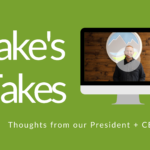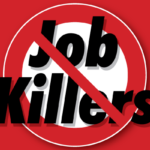
A bill that seeks to provide striking workers with unemployment insurance (UI) benefits has been tagged a job killer by the California Chamber of Commerce.
SB 1116 (Portantino; D-Burbank) will allow striking workers to claim UI benefits when they choose to strike. Because the UI Fund is paid for entirely by employers, SB 1116 will effectively add more debt onto California employers. Moreover, SB 1116 will effectively force employers to subsidize strikes at completely unrelated businesses because the UI Fund’s debt adds taxes for all employers, regardless of whether they’ve had a strike.
Overturns Precedent
By forcing employers to pay UI benefits to striking workers, SB 1116 would overturn more than 70 years of precedent and put California’s UI program at risk of violating federal law.
This bill is a repeat of last year’s SB 799 (Portantino; D-Burbank), which was tagged as a job killer and was vetoed by Governor Gavin Newsom because of the debt it would add to California’s UI Fund. This concern is even more pressing given this year’s budget troubles.
SB 1116 would give striking workers the ability to claim unemployment after two weeks of striking—and thereby add the cost of those benefits to California’s outstanding $20 billion in federal loans.
Historic UI Fund Debt
The California UI Fund is in historic debt—approximately $20 billion—due to the COVID-19 pandemic and subsequent statewide shutdown. As a result, California employers already are paying increased UI taxes pursuant to federal law and are likely to face ongoing tax increases until approximately 2032.
In addition to adding to employers’ tax burdens, SB 1116 will also add to the state’s General Fund obligation regarding the UI Fund.
For example, in 2023–2024, the interest payment is expected to cost the state approximately $300 million—and similar payments will continue until the UI Fund returns to solvency. In the proposed 2024–2025 budget, it is estimated to rise to $331 million.
SB 1116 risks compounding UI’s insolvency, which will weigh heavily on the State, California’s employers, and California’s unemployed.
Robert Moutrie







